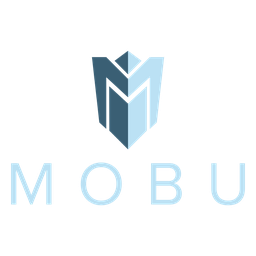
The value additives of tokenization are often overlooked.
Presently, tokenization is primarily used to integrate a token economy into software or distribution networks. The tokens trading on secondary markets have shown the amount of liquidity tokenization can bring to the value of an asset. However, the present state of the blockchain space has not delved into the full potential of tokenization.
Some of the largest asset classes in the world, such as real estate
or alternative investments in collectibles or private equity, are
not only highly illiquid, but also inaccessible to the masses.
The value additives of tokenization are often overlooked.
Presently, tokenization is primarily used to integrate a token economy into software or distribution networks. The tokens trading on secondary markets have shown the amount of liquidity tokenization can bring to the value of an asset. However, the present state of the blockchain space has not delved into the full potential of tokenization.
Some of the largest asset classes in the world, such as real estate or alternative investments in collectibles or private equity, are not only highly illiquid, but also inaccessible to the masses. This reality has created the ever-widening wealth gap as most people do not have access to the largest asset classes or investment opportunities.
Real estate is the one asset that has constantly appreciated through history and alternative investments, like Art & Collectibles, appreciated even in 2018, a year in which most assets and equity markets witnessed a slump.
And yet, most people have access to ownership in neither real estate or alternative assets.
There is no single solution to the wealth gap and the lack of equal opportunity, but tokenization does provide a means to mitigate the problem as it can create highly liquid and accessible markets for virtually any asset.
A Fintech Revolution in the Developing World
Most developed countries have established financial institutions and infrastructure. While these systems benefit those with a pre-existing wealth, they have become well-integrated into the economy and thus can be difficult to mould into better structures.
Thus, a new fintech startup, Mobu, is taking the opportunity to leverage blockchain technology to build the next generation financial infrastructure in South Africa. As the region’s existing financial system has not developed to the scale of its American or European counter parts, the financial operations in the country are nimble enough to adopt new integrations.
The Launch
Mobu has acquired a stake in a functioning stock exchange in the country and this allows it to have the legal and political access needed to work with regulators to get proper frameworks approved to for security token offerings (STOs).
The key resistance to STOs remains that while they are highly valuable, most of the analysis is theoretical. Existing STO platforms themselves only issued utility tokens.

Mobu, however, is launching the shift to STOs with its own actions. The platform is issuing security tokens that give rights previously accessible only with traditional equity ownership: voting rights, dividends, rights to assets at liquidation, etc. New developments are not established with mere speculation and thus the platform’s founders are leading the shift by exemplifying the potential of security tokens through the success of their own STO.
Laying the Format
While ICOs exploded in 2018, the first ICO took place back in 2013 and Ethereum’s token sale didn’t take place until 2014.
ICOs took momentum after the success of Ethereum. 2017 saw the initial heavy flow of ICOs; the format laid by these token sales paved a path for the massive onslaught of token offerings in 2018.
The reason ICOs are so easy to launch is that there are platform that enables anyone to launch the token, plenty of agencies that provide support for the sale of that token, and myriad examples of successful token sales that serve as templates for newer ICOs.
Mobu aims to deliver the same resources for STOs. Mobu is creating the technology to launch a security token, a means to connect to agencies and service providers that can support the sale and legal compliance of the sale of the token, and examples of successful token sales that will serve as templates for future STOS.
While the offering of a token launch platform and resource connection network is a key part of Mobu, the differentiating factor is that Mobu itself aims to tokenize various assets in order to display the feasibility and value of security token offerings. While other STO platforms aim to wait for security token adoption, Mobu is fueling it. The key benefit of a platform is that it must be developed and maintained and others utilize it; however, the drawback is that without activity, a platform is useless. Thus, Mobu is initiation the activity through its own efforts.

Mobu is going to utilize its development to exemplify the value of security tokens to provide people with access to common investment outlets by tokenizing a gas station. It will also display the value of STOs for technological ventures by tokenizing a drone-managed crowdfarm and an FX company.
The need to display the feasibility of STOs is important. Mobu’s move to leverage its own technology to display the benefits security tokens can provide is the right strategy to bolster STO growth.Gx6XmnDbXc6z7bLBPZtHEuBETY.png)
This reality has created the ever-widening wealth gap as most
people do not have access to the largest asset classes or investment
opportunities.
Real estate is the one asset that has constantly appreciated through
history and alternative investments, like Art & Collectibles, appreciated
even in 2018, a year in which most assets and equity markets witnessed a slump.
And yet, most people have access to ownership in neither real estate or alternative assets.
There is no single solution to the wealth gap and the lack of equal opportunity, but tokenization does provide a means to mitigate the problem as it can create highly liquid and accessible markets for virtually any asset.
A Fintech Revolution in the Developing World
Most developed countries have established financial institutions and infrastructure. While these systems benefit those with a pre-existing wealth, they have become well-integrated into the economy and thus can be difficult to mould into better structures.
Thus, a new fintech startup, Mobu, is taking the opportunity to leverage blockchain technology to build the next generation financial infrastructure in South Africa. As the region’s existing financial system has not developed to the scale of its American or European counter parts, the financial operations in the country are nimble enough to adopt new integrations.
The Launch
Mobu has acquired a stake in a functioning stock exchange in the country and this allows it to have the legal and political access needed to work with regulators to get proper frameworks approved to for security token offerings (STOs).
The key resistance to STOs remains that while they are highly valuable, most of the analysis is theoretical. Existing STO platforms themselves only issued utility tokens.
Mobu, however, is launching the shift to STOs with its own actions. The platform is issuing security tokens that give rights previously accessible only with traditional equity ownership: voting rights, dividends, rights to assets at liquidation, etc. New developments are not established with mere speculation and thus the platform’s founders are leading the shift by exemplifying the potential of security tokens through the success of their own STO.
Laying the Format
While ICOs exploded in 2018, the first ICO took place back in 2013 and Ethereum’s token sale didn’t take place until 2014.
ICOs took momentum after the success of Ethereum. 2017 saw the initial heavy flow of ICOs; the format laid by these token sales paved a path for the massive onslaught of token offerings in 2018.
The reason ICOs are so easy to launch is that there are platform that enables anyone to launch the token, plenty of agencies that provide support for the sale of that token, and myriad examples of successful token sales that serve as templates for newer ICOs.
Mobu aims to deliver the same resources for STOs. Mobu is creating the technology to launch a security token, a means to connect to agencies and service providers that can support the sale and legal compliance of the sale of the token, and examples of successful token sales that will serve as templates for future STOS.

While the offering of a token launch platform and resource connection network is a key part of Mobu, the differentiating factor is that Mobu itself aims to tokenize various assets in order to display the feasibility and value of security token offerings. While other STO platforms aim to wait for security token adoption, Mobu is fueling it. The key benefit of a platform is that it must be developed and maintained and others utilize it; however, the drawback is that without activity, a platform is useless. Thus, Mobu is initiation the activity through its own efforts.
Mobu is going to utilize its development to exemplify the value of security tokens to provide people with access to common investment outlets by tokenizing a gas station. It will also display the value of STOs for technological ventures by tokenizing a drone-managed crowdfarm and an FX company.
The need to display the feasibility of STOs is important. Mobu’s move to leverage its own technology to display the benefits security tokens can provide is the right strategy to bolster STO growth.
Source
Plagiarism is the copying & pasting of others work without giving credit to the original author or artist. Plagiarized posts are considered spam.
Spam is discouraged by the community, and may result in action from the cheetah bot.
More information and tips on sharing content.
If you believe this comment is in error, please contact us in #disputes on Discord
TIP: Users plagiarizing the content of other Steemians make great addition to @cheetah blacklist.
Downvoting a post can decrease pending rewards and make it less visible. Common reasons:
Submit
Hi! I am a robot. I just upvoted you! I found similar content that readers might be interested in:
https://steemit.com/bitcoin/@hatu/south-african-startup-aims-to-dominate-sto-market
Downvoting a post can decrease pending rewards and make it less visible. Common reasons:
Submit